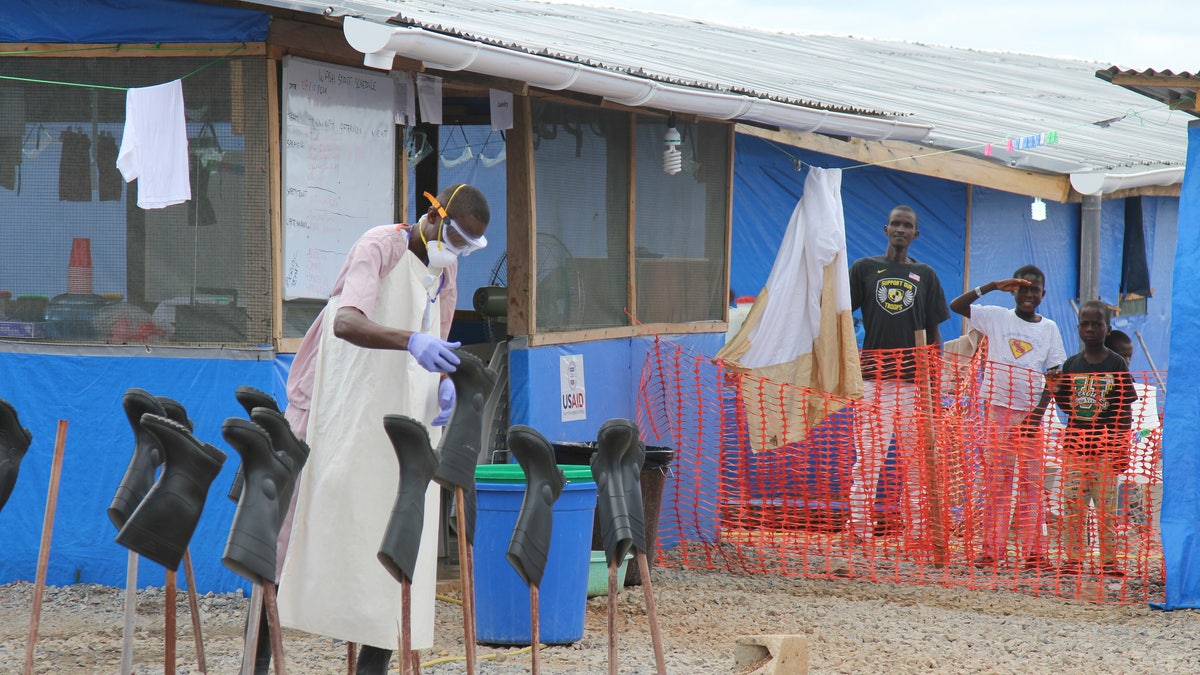
Boys Solomon (C, rear) and Joe (R, rear) stand in the "red zone" where they are being treated for Ebola at the Bong County Ebola Treatment Unit about 200 km (120 miles) east of the capital, Monrovia, October 28, 2014. REUTERS/Michelle Nichols
The World Health Organization said on Wednesday it continued to see a slowdown in weekly Ebola cases in Liberia, although incidence of the disease was still rising in Sierra Leone and stable in Guinea.
The three countries have reported 1,828 Ebola cases of the disease over the past 21 days, the maximum incubation period of the virus, and 64 percent of those new cases were in Sierra Leone, 22 percent were in Liberia and 14 percent in Guinea.
The slowdown in Liberia, first announced by the WHO a week ago, has surprised many experts who had warned that the disease was set to continue spreading exponentially.
The WHO has said it may be the first evidence that efforts to tackle the disease are working, while warning that the outbreak is still not under control.
All three countries' capitals reported rapid rates of transmission of the disease over the past week, but there were no new confirmed cases in the epicenter of the outbreak, the district of Gueckedou in Guinea.
The WHO revised the cumulative death toll downwards for a second week running, with 440 fewer deaths reported in Sierra Leone than in data published last Friday, but 284 deaths added to Liberia's tally and 23 to Guinea's since then.
It said the revision was caused by a change in the source of the data. Previously it had combined patient databases and country reports from health ministries and WHO offices, but it had switched to relying entirely on the country reports.
It did not explain the reason for the change, but graphs in the WHO's update suggest it is taking a conservative approach, since numbers in patient databases appear to have fallen below those in situation reports in recent weeks.
The WHO has previously said it was working to improve the quality of the data and warned that could lead to upward or downward revisions.
The latest report put the total death toll at 4,818 out of 13,042 cases as of Nov. 2, compared to 4,951 deaths in Friday's Ebola update; but the WHO repeated a warning that the figures continued to be too low because of under-reporting of cases.
The response to the outbreak depends on building up health care and increasing the number of safe burials of Ebola patients, since bodies of those who have died from the disease are highly contagious.
The WHO said it now needed 528 dead body management teams, having given a target of 370 eight-person teams earlier in the week. It so far has only 27 percent of the revised number.
Another key target is tracing contacts of Ebola patients, and although the data showed 95 percent of contacts were being traced, the WHO said it mistrusted that figure, as Sierra Leone officially averaged seven contacts per patient and Guinea four.
